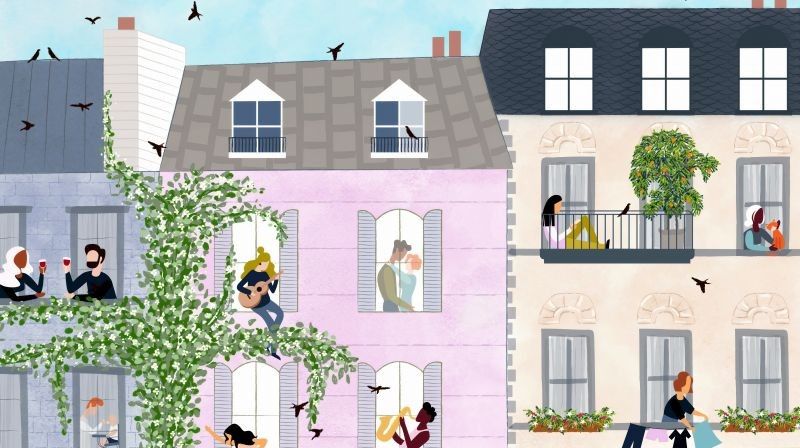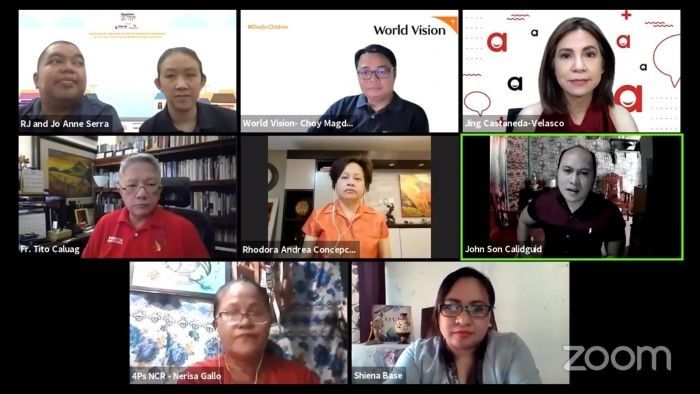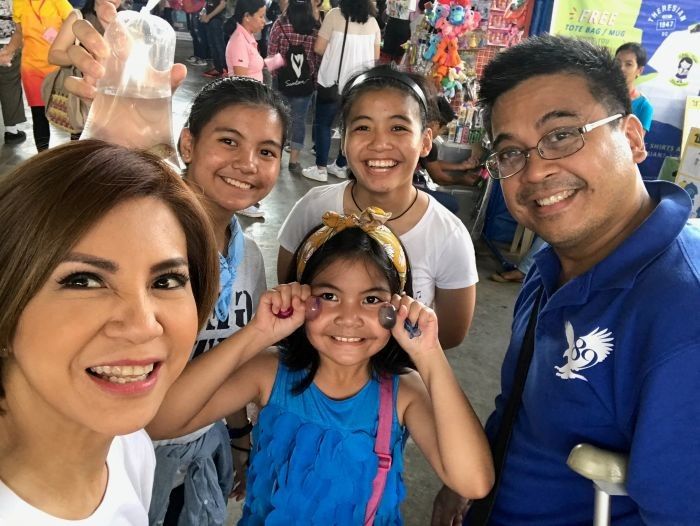It Takes a Village: The biggest challenges of families in a post-COVID world


How has the pandemic affected your family? Are you worried about how to pay for bills, because of limited income? Are you fighting more with your partner? Are your kids restless from being stuck at home, struggling with homework, or showing signs of depression?
You’re not the only one who feels that way, and rest assured that you don’t have to solve it all by yourself. All sectors of society—government, private, NGOs, and experts from all fields—are working together to support the Filipino family through one of the worst crises it has ever faced.
A holistic dialogue
I was fortunate enough to be invited to moderate the first-ever Filipino Family Well-Being Virtual Conference 2021, organized by the Unilab Foundation (headed by its Executive Director Lilibeth Aristorenas and the Foundation’s Heads Up PH team of program director Dr. Shake Hocson and project officer Jefferson Hilario).

The foundation’s Bayanihan for WellBeing initiative brought together representatives from different sectors of society to talk about how a family can cope with the pandemic—and even become stronger because of it.
The speakers included in my session were:
- RJ and Jo Anna Serra, Couples for Christ
- Pastor Choy Magdaong, Manager, Faith and Development – Operations, World Vision Development Foundation Inc.
- Fr. Tito Caluag, Vice President for Academic Affairs and Formation, Magna Anima Teachers College
- Dr. Rhea Concepcion, President, Philippine Society for Child and Adolescent Psychiatry
- John Calidguid, Project Development Officer, Social Technology Bureau, DSWD
- Nerrisa Gallo, 4Ps
- Shiena Base, Technical Specialist on Child Protection, Educo Philippines
This is one of the first holistic dialogues on the "New Family in the New Normal," and it’s an important one. As Fr. Tito Caluag said, realities like extended isolation and mass distance learning forces all of us to look for a new paradigm. “There are challenges now that can’t be understood from old frameworks.”
Here are some of their insights, and how it has helped me as a mom and wife who also worries about how the pandemic is affecting my family’s well-being.
Online learning
“Nahihirapan ang mga bata. Feeling nila, every day may exam,” says Nanay Nerissa Gallo of 4Ps. Everyone can relate to this. While teachers try their best to explain the lessons through Powerpoints and handouts, distance learning requires more self-study—and more help from the parents.
But what if both parents work, or have limited Internet access and “techie” skills? What if the Internet connection is unstable, or your child has a different learning style? Powerpoints and handouts favor children who learn well through reading or hearing concepts. But there are kids who learn by doing, or interacting with others.
There’s a lot of pressure, both on the child and the parents. “It’s a time to be more creative,” says Dr. Rhea, “but most importantly, moms shouldn’t do it alone. Get all family members involved. Delegate roles and responsibilities.”
Ate or kuya can tutor their younger siblings, or help out with chores, so you have more time to help with homework. Couples should set aside traditional gender roles—i.e, dapat ang Nanay ang nakatutok sa pag-aaral ng mga bata—and share the new responsibility.
RJ and Anne, who have five kids in both private and public schools, say that you can always tell the teachers if you need help. If you have Internet challenges, ask about offline modules or alternative ways of passing homework. “Teachers understand what you are going through, and are very considerate.”
Marital stress
In last week’s column on how to pandemic-proof your marriage, I mentioned that the pandemic is causing marital conflicts and separations worldwide. Surveys found that one in five couples are fighting more often, and 30% said that they are more annoyed at their partner than usual.
“Listen to each other, appreciate little things, and never give up on love,” says Shiena. Try to remember what made you fall in love with each other in the first place. You may drive each other crazy today, but there was a time when you were crazy about each other—rekindle that.
When you feel an argument starting, listen before you talk. “May yaman na nakukuha sa pakikinig, kasi mas nauunawan natin ang sitwasyon at lalim ng pangangailangan nila,” says Pastor Choy.
However, Shiena emphasizes that being “understanding” does not mean tolerating abuse.
“Arguments are part of married life, but what’s not acceptable is [verbal or physical] violence,” she says. Your kids will see it. Not only will it leave emotional scars, but they may think that abusive relationships are normal.
Fr. Caluag adds that isolation and the feeling of being trapped can heighten stress, and give rise to violence. That’s why it’s so important to have a sense of connection—not just with your partner or with your family, but with other people in the community.
If you feel that your stress is already putting a strain on your marriage, talk to friends, a spiritual advisor, or a marriage counsellor.
Feelings of anxiety/despair
Experts have said that depression and anxiety are the “second wave of the pandemic.” The emotional effects of isolation, the stress from financial problems and uncertain future, and being cut off from the usual coping mechanisms are all taking their toll.
Parents tend to suppress anxiety or say “I’m strong!” because we want to be strong for our family. But it’s healthier to acknowledge our fears and know that it’s okay to make mistakes, or even ask your partner for a hug because you’re having a bad day.
We have to be kind to ourselves, and that will make it easier to accept and adjust the New World that we now live in.
Pastor Choy says that “ginhawa” is the closest Filipino translation of the word “well-being.” For me, that means you find ways to lighten your physical and emotional burden—you reach a place of peace, which then gives you the mental clarity to address your problems in a productive way.
That includes self-care—allotting at least 30 minutes a day to doing something you love, expressing your feelings in a journal, and asking help when you need it.
But it also means taking care of your marriage. “Ang maginhawang pamilya ay nagsisimula sa maginhawang pagsasama ng mag-asawa,” says Pastor Choy. Children get their sense of security from the family environment. In an uncertain world, the home is their happy place—and your marriage is the foundation.
Admittedly, the COVID-19 crisis is putting unusual stress on your marriage, which is why it’s even more important now to put God in the center of your relationship. Pray for each other, and pray for your marriage.
Financial problems
Many people have lost their jobs, or are struggling to keep their business afloat. They have to look for new ways to earn money and put food on the table.
RJ and Jo Anne Serra, whose own family business was affected by the pandemic, says that we need to think positively, and see the New Normal as a chance to find new opportunities.
For example, the lockdown made it difficult for consumers to buy goods at the local talipapa. Tricycle drivers who also lost income during the public transportation ban started delivering fresh meat and produce to the villages—helping vendors sell their goods, while earning money for themselves.
“Believe that things will get better, and after we have done all we can do, just lift it up to the Lord. Don’t lose hope. Nasa tao ang gawa, nasa Diyos ang awa,” he says.
John also says that people who have been financially affected by the pandemic can call the DSWD hotline at 89318144, or their local government units. You can find livelihood programs, or urban gardening programs that can help with food security. (You can also find out more about urban gardening initiatives in one of my previous columns.)

We can do this, together
It takes a village to raise a child…and to protect the family in a pandemic.
Public and private sectors are working together to provide families with the support they need to survive the challenges brought on by the COVID-19 pandemic.
Psychiatrists are offering teleconsultation services, and have begun to offer face-to-face consultations—while observing safety protocols, of course. You can also approach your parish, who can provide psycho-social and spiritual guidance.
For your child’s learning support, you can approach your teacher and schools, or look for free educational programs on TV, radio and the Internet. You can also download books, modules and other materials from The DepEd Commons.
Contact the nearest DSWD field office to find out about supplemental feeding programs, livelihood programs, and other services. They are also rolling out pilot counselling programs.
The Catholic Bishops Conference of the Philippines (CBCP) has also partnered with the Unilab Foundation’s Bayanihan Wellness Program to launch the Building Networks of Compassion program. This will have several components—food security, education, well-being, livelihood and jobs—which they will implement through parishes and other local communities.
A shared dialogue and journey
The Filipino Family Well-Being Virtual Conference is just one of many dialogues that we need—as a family, and as a nation—so we can get through this crisis together.
But as Shiena says, this dialogue should include our children. We need to understand how the pandemic is affecting them, and listen to their ideas. We can’t leave them out of the conversation, not in public discourse and especially not at home.
I’m actually so used to doing things myself, and being on my own. But one of the most powerful insights I got from being part of Filipino Family Well-Being Virtual Conference is that we need to reach out.
The pandemic is the biggest challenge the world has ever faced. But it is also the perfect teaching moment and bonding opportunity for the family. Let us turn this crisis into a chance to listen to each other, learn from each other, and be strong for each other.
Jo Anne said, “When my kids and I talk about the pandemic, I tell them: it’s hard, but one day we will look back on this year. Let’s make good memories. Help each other. Be sensitive to each other’s needs. We will be better people, better families after this pandemic.”
You can watch the full video of the conference here.
---
I’d love to hear from you! Share your stories and tips or suggest topics at jingcastaneda21@gmail.com. You can also follow my social media accounts: Instagram, Facebook, Youtube, Twitter, and Kumu.



















